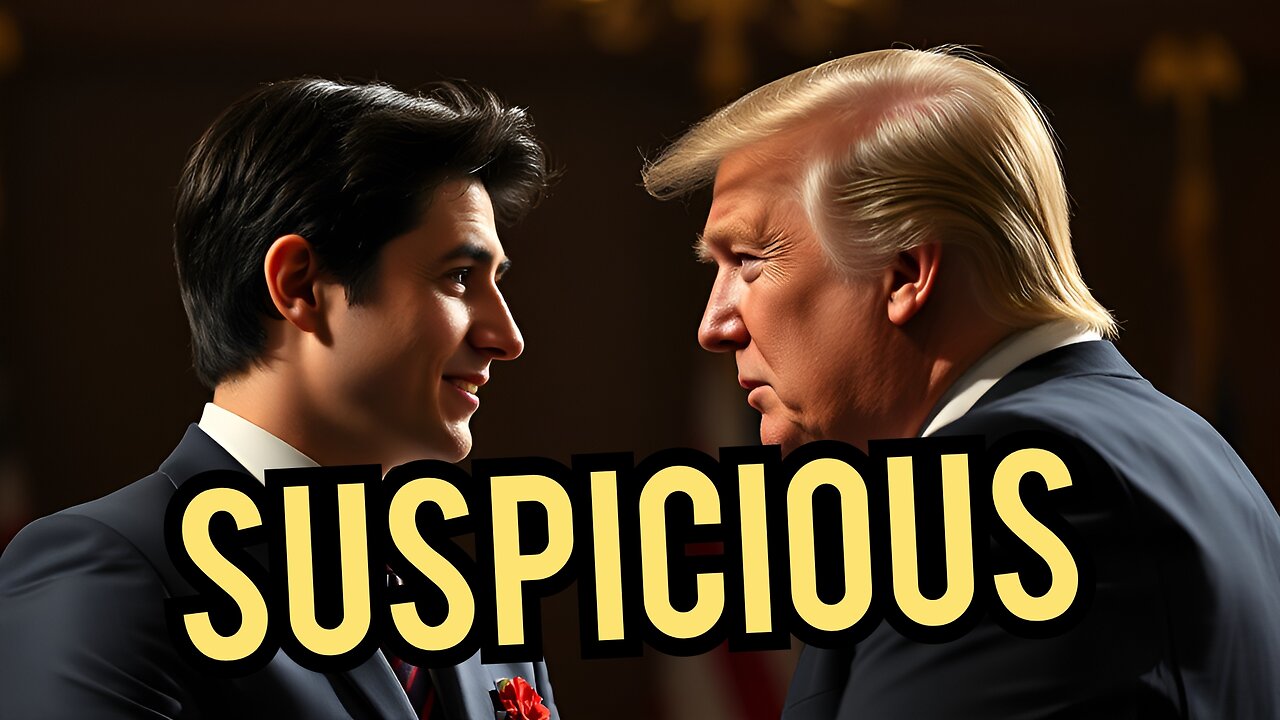Premium Only Content

Trudeau visit to Trump makes no sense at all ?, fentanyl trafficking, housing affordability, CCP
This discussion by Mike Martins centers on the interconnected issues of fentanyl trafficking, housing affordability, and political maneuvering, with some references to staged narratives and global impacts. Here's a breakdown of the key points:
1. Fentanyl Crisis and Its Origins
Fentanyl (referred to as "fenel") primarily comes from China and enters North America through ports in Canada and via factories in Mexico.
Chinese criminal organizations are implicated in distributing fentanyl globally, with ties to money laundering and real estate investments.
2. Fentanyl's Impact on Canadian Housing
Money from fentanyl sales is allegedly laundered through Canadian real estate markets, inflating property prices and creating housing shortages.
Empty properties bought with illicit funds contribute to unaffordability in cities like Vancouver.
3. Canadian Government's Response
Claims of a staged fentanyl production facility bust in Canada were presented to the public as a crackdown effort but were allegedly fabricated.
The government is accused of misleading citizens about the origins of fentanyl and the effectiveness of enforcement actions.
4. Canada-U.S. Cooperation
Canadian Prime Minister Justin Trudeau and former U.S. President Donald Trump discussed tackling the fentanyl crisis after threats of tariffs.
The effectiveness and sincerity of such efforts are questioned, given the ongoing influx of fentanyl.
5. Broader Societal Implications
Fentanyl overdoses are highlighted as a major crisis, killing over 70,000 Americans annually and exacerbating societal problems in Canada and the U.S.
The connection between economic instability (e.g., unaffordable housing, food insecurity) and drug crises is emphasized.
6. Political Allegations and Media Criticism
Criticism of Trudeau's government includes allegations of manipulating narratives to maintain power.
Mike mentions historical protests (e.g., the Yellow Vest movement) as evidence of longstanding dissatisfaction with the Canadian government.
Canadian media, particularly the CBC, is accused of propagating misleading or incomplete information.
7. Historical Context and Predictions
Mike references earlier discussions (dating back over five years) on fentanyl, money laundering, and housing crises, positioning himself as an early voice on these issues.
He suggests that political events, like the pandemic, were strategically leveraged to maintain power and suppress dissent.
8. Broader Observations
References to international figures (e.g., Joe Biden, Donald Trump, Elon Musk) and their perceived roles in shaping these issues are included.
Speculation about the lack of a 2025 Canadian election and the longevity of Trudeau's tenure in power is introduced.
This narrative combines socio-political analysis with a critique of media and government accountability, aiming to connect global drug trafficking to local economic and political challenges.
fentanyl crisis, Chinese gangs, money laundering, Canadian housing market, Trudeau government, real estate inflation, Vancouver unaffordability, drug trafficking, housing shortage, opioid epidemic, fentanyl overdoses, China-Mexico trade, BC ports, fake drug bust, staged narratives, Canada-U.S. relations, Justin Trudeau, Donald Trump, housing bubble, Canadian economy, fentanyl smuggling, Yellow Vest movement, Canadian protests, mainstream media critique, CBC controversy, China connection, empty homes, youth crisis, fentanyl in North America, political manipulation, global drug trade, housing affordability.
-
 6:43
6:43
Mike Martins Channel
8 days ago $0.08 earnedChrystia Freeland steps down, Who cares, the Damage is done , Mission Accomplished.
4144 -
 LIVE
LIVE
CLUJ
1 hour agoCHRISTMAS EVENING HYPE!! LETS HAVE FUN GAMING!!
375 watching -
![I AM FINALLY BACK :: PUBG: BATTLEGROUNDS :: RUMBLE NOW HAS GIFTED SUBS!!! [Merry Christmas] {18+}](https://1a-1791.com/video/fwe1/22/s8/1/e/f/C/6/efC6v.0kob-small-I-AM-FINALLY-BACK-PUBG-BATT.jpg) LIVE
LIVE
a12cat34dog
3 hours agoI AM FINALLY BACK :: PUBG: BATTLEGROUNDS :: RUMBLE NOW HAS GIFTED SUBS!!! [Merry Christmas] {18+}
316 watching -
 LIVE
LIVE
STARM1X16
3 hours agoMerry Christmas Fortnite
175 watching -
 2:45:33
2:45:33
Sgtfinesse
3 hours agoMerry Christmas Night
9.04K4 -
 LIVE
LIVE
tacetmort3m
19 hours ago🔴 LIVE - (MERRY CHRISTMAS) TIME TO SPREAD DEMOCRACY - HELLDIVERS 2 OMENS OF TYRANNY
45 watching -
 12:42
12:42
Cooking with Gruel
17 hours agoBrown Butter Trifle with Salted Caramel and Cinnamon Apple
7591 -
 2:46
2:46
BIG NEM
6 hours agoDiscovering RAKIJA: The Holy Liquer of the Balkans
441 -
 1:11:38
1:11:38
Film Threat
11 hours agoCHRISTMAS DAY CHILL STREAM WITH CHRIS GORE | Hollywood on the Rocks
123K24 -
 14:22:40
14:22:40
The Quartering
1 day agoYule Log Christmas MAGA Edition With Memes! Come Hang Out!
213K29